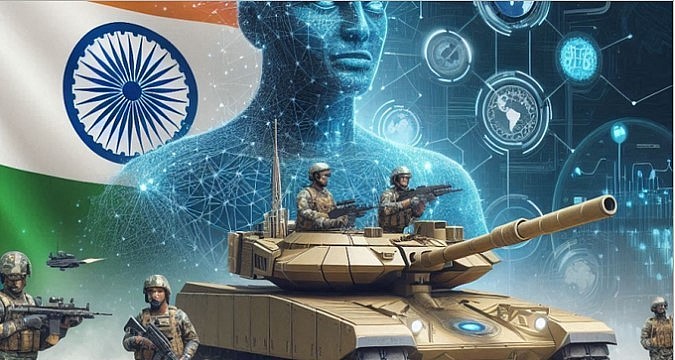 |
Rajiv Nayan, Secretary-General of the International Aerospace Innovation Society (IAIS), emphasized the landmark nature of this achievement. “The successful launch of 52 satellites is a significant boost to our security posture, and we achieve this without signaling any aggressive intent,” Nayan remarked. He highlighted how this launch aligns with India’s strategic vision to harness emerging space technologies for national security. “As military capabilities evolve, India is taking a proactive approach by staying ahead of the curve,” he added, underscoring the country’s forward-thinking stance in space defense.
Girish Linganna, a renowned space analyst, elaborated on the integration of Artificial Intelligence (AI) with satellite technology. “By merging AI with our satellite systems, we enable autonomous operations, faster data collection, and more efficient decision-making,” Linganna explained. He believes this integration will grant India’s military unparalleled speed and precision, offering a decisive advantage in modern warfare where real-time data is crucial for mission success.
Doctor Mayank Vahia, a distinguished space scientist, provided context on India’s broader advancements in space technology. “India’s space program has made significant strides, particularly with GPS systems like GAGAN and NAVIK and remote sensing capabilities, offering valuable regional insights,” he noted. Given the evolving complexities of global security, Dr. Vahia emphasized the critical importance of expanding surveillance capabilities through AI integration and the involvement of private space launchers. “The evolution of the Indian Air Force into the Air and Space Force is an inevitable step,” he stated, highlighting India’s proven capability to intercept satellites, which places it in an elite group of nations with advanced space warfare potential.
The transformation of the IAF into the IASF is a pivotal moment in India’s defense strategy. By leveraging space technology and AI, India is not only enhancing its military capabilities but also asserting its intention to become a major player in the global space arena. This shift is seen as a proactive response to current threats and future challenges, ensuring India’s position as a formidable force in an era where space is both a domain of conflict and cooperation. Moreover, this move underscores India’s commitment to safeguarding its sovereignty and security while also advancing its technological prowess on the world stage.
China Extends Olive Branch: Offers to Work With India Ahead of High-Level Talks
China and India are set to embark on a new chapter in their bilateral relations, with a renewed commitment to collaboration and cooperation. On Tuesday, the Chinese Foreign Ministry expressed its readiness to work alongside India to implement the important common understandings reached between the leaders of these two great nations. With a shared vision for the future, both countries are now actively working to bring their relationship back on track and pave the way for a prosperous and stable partnership.
India Climbs the Ranks: A Top 50 Country in the ‘Network Readiness Index 2024’
India has made a significant stride in its digital transformation journey, as evidenced by its remarkable jump in the Network Readiness Index 2024 (NRI 2024). With an ascent of 11 positions, India proudly secured the 49th rank among 133 economies, a notable enhancement from its previous position at 60th in the NRI 2023. This advancement underscores the country’s burgeoning technological prowess and the triumph of its endeavors to nurture digital innovation and connectivity.
“Europe: A Vital Strategic Region, Germany: Our Key Partner”: Indian PM Modi
Indian Prime Minister Narendra Modi emphasized the importance of the India-Germany strategic partnership, celebrating 25 years of strong ties. He underscored Europe’s pivotal role for India, highlighting the region’s significance in trade and geopolitical relations.
Unlocking Energy Potential: India, Nepal, and Bangladesh Pioneer Trilateral Power Flow
On Friday, the Union Minister for Power and Housing and Urban Affairs, Manohar Lal Khattar, inaugurated a landmark event: the first trilateral power flow transaction from Nepal to Bangladesh. This historic occasion was hosted virtually by Nepal’s Ministry of Energy, Water Resources, and Irrigation, marking a significant step forward in regional energy cooperation.








